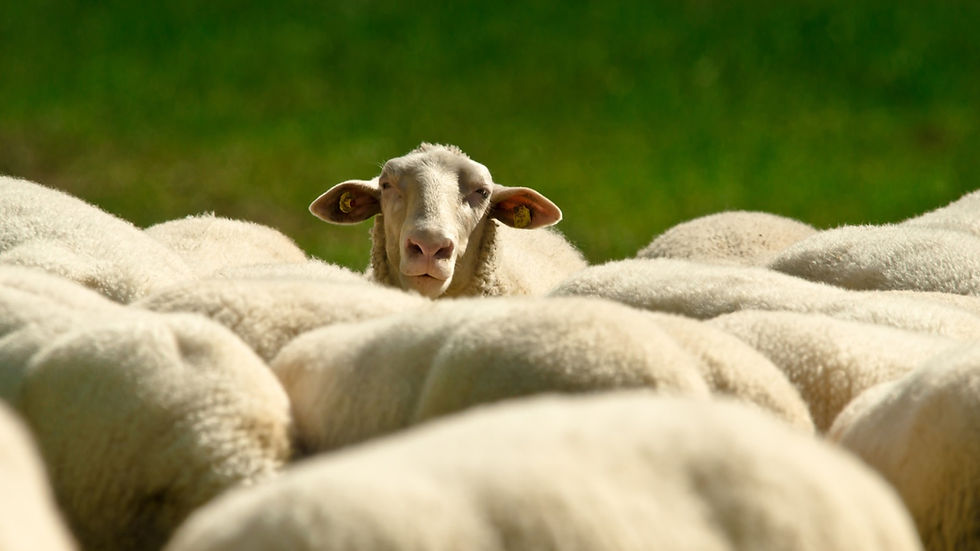Exports of Ukraine grain may sustain as Russia abstains
- Rikki Lambert
- Oct 30, 2022
- 3 min read

A coalition of countries is working towards sustaining grain exports from the Black Sea region regardless of whether Russia goes through with its threat to withdraw from a temporary deal to allow food movements.
On Sunday the European Union called on Russia to reverse its decision to pull out of the UN-brokered grain deal, a move which will exacerbate the global food crisis.
Russia told UN secretary general Antonio Guterres on Saturday in a letter, seen by Reuters, that it was suspending the deal for an "indefinite term" because it could not "guarantee safety of civilian ships" travelling under the pact.
However, reports on Monday indicated the shipments could keep moving in a collaboration with Turkey.
Moscow suspended its participation in the Black Sea deal on Saturday, effectively cutting shipments from Ukraine, one of the world's top grain exporters, in response to what it called a major Ukrainian drone attack earlier in the day on its fleet near the port of Sevastopol in Russian-annexed Crimea. EU foreign policy chief Josep Borrell said on Twitter:
"Russia's decision to suspend participation in the Black Sea deal puts at risk the main export route of much needed grain and fertilisers to address the global food crisis caused by its war against Ukraine.
"The EU urges Russia to (reverse) its decision."
On Saturday, US President Joe Biden called the move "purely outrageous", saying it would increase starvation, while Secretary of State Antony Blinken accused Moscow of weaponising food.
On Sunday, Russia's ambassador to Washington, snapped back, saying the US response was "outrageous" and made false assertions about Moscow's move.
Russia's defence ministry said Ukraine attacked the Black Sea Fleet near Sevastopol with 16 drones early on Saturday, and that British navy "specialists" had helped coordinate what it called a terrorist attack.
Russia said it had repelled the attack but that the ships targeted were involved in ensuring the grain corridor out of Ukraine's Black Sea ports.
Ukrainian Foreign Minister Dmytro Kuleba said Moscow used the explosions 220km away from the grain corridor as a "false pretext" for a long-intended move, tweeting but providing no further evidence:
"Russia has planned this well in advance ... Russia took the decision to resume its hunger games long ago and now tries to justify it."
President Volodymyr Zelenskiy's chief of staff accused Russia on Saturday of inventing attacks on its own facilities.
Kyiv often accuses Russia of using the Black Sea Fleet to fire cruise missiles at Ukrainian civilian targets, a charge supported by some military analysts, who say that makes the fleet a legitimate military target.
Russia's departure from the grain deal marks a new development in the eight-month war that has recently been dominated by a Ukrainian counteroffensive and Russian drone and missile attacks that have destroyed more than 30 per cent of Ukraine's generating capacity.
Each side has accused the other of being prepared to detonate radioactive bombs.
Zelenskiy called for a strong response from the UN and Group of 20 (G20) major economies to what he called Russia's nonsensical move on the grain deal. On Saturday, Zelenskiy said Russia should be expelled from the G20:
"This is a completely transparent attempt by Russia to return to the threat of large-scale famine for Africa, for Asia."
The grain deal had restarted shipments from Ukraine, allowing sales on world markets, targeting the pre-war level of five million metric tonnes exported from Ukraine each month. Ahead of its November 19 expiry, Russia had repeatedly said that there were serious problems with the arrangement. Ukraine complained Moscow had blocked almost 200 ships from picking up grain cargoes.
When the agreement was signed, the UN World Food Programme said some 47 million people were suffering "acute hunger" as the war halted Ukrainian shipments, causing global food shortages and sending prices soaring.
The deal ensured safe passage in and out of Odesa and two other Ukrainian ports in what an official called a "de facto ceasefire" for the ships and facilities covered.



Comments